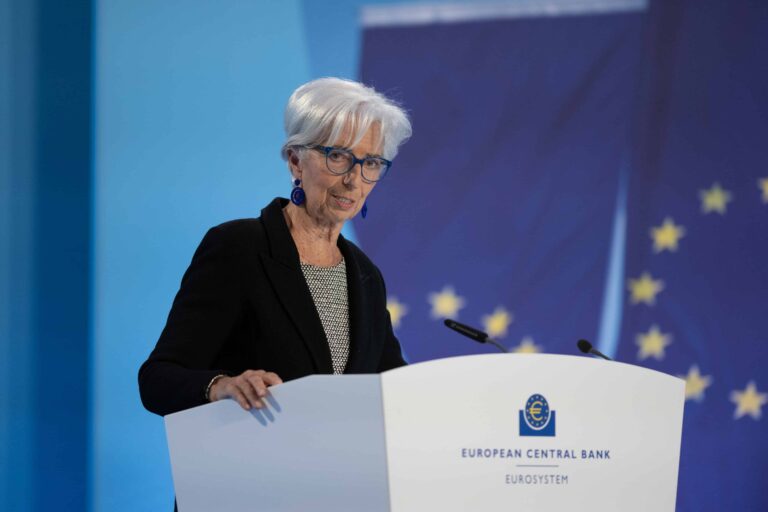According to analysts at HSBC, the British bank holding company, the ECB could proceed with further interest rate hikes. And, as the bank points out, the hikes could continue after the summer.
In its analysis HSBC presents June, July and September as crucial times when 25-point hikes could be implemented.
Table of Contents
HSBC’s analysis
HSBC’s analysis identifies five different factors that suggest the possibility of further increases by the ECB. These factors relate to the labour market, productivity, political implications and consumer confidence.
The different effects are actually part of a succession of events. Namely, a structural chain that weaves together the various elements arising from and triggering the economic crisis related to high inflation.
Rising inflation has caused and is causing a rise in retail prices. The growth is due, among other factors, to a series of increases in the cost of labour and raw materials, as well as energy. All coupled with slow wage growth that is not keeping pace with the rapid rise in prices.
Politically, the ground is still being fought between those who would like higher rates to accelerate the decline in inflation and those who would prefer a more moderate increase. Or, even a contraction of increases, especially now that inflation is falling.
On this last point, HBSC is of the opinion that if there were ever to be a slowdown by the ECB in raising interest rates, this would not be in the short term. The bank rules out the possibility of this happening in the coming months.
Upcoming ECB rate hikes
According to HBSC’s analysis, the ECB could implement new interest rate hikes as early as June. And, continue in this vein in July and presumably in September.
The next increases will most likely be in the range of 25 points. I.e. 0.25 % increases in line with the last increases implemented, bringing the general rate and the deposit rate together above 4 %.
The 4% threshold is regarded by many as an alert threshold. Thus not yet close to the point of no return beyond which interest rate increases could cause more damage than high inflation.
Read also: Higher salaries, Europe says “no”: why the ECB and Lagarde oppose it












